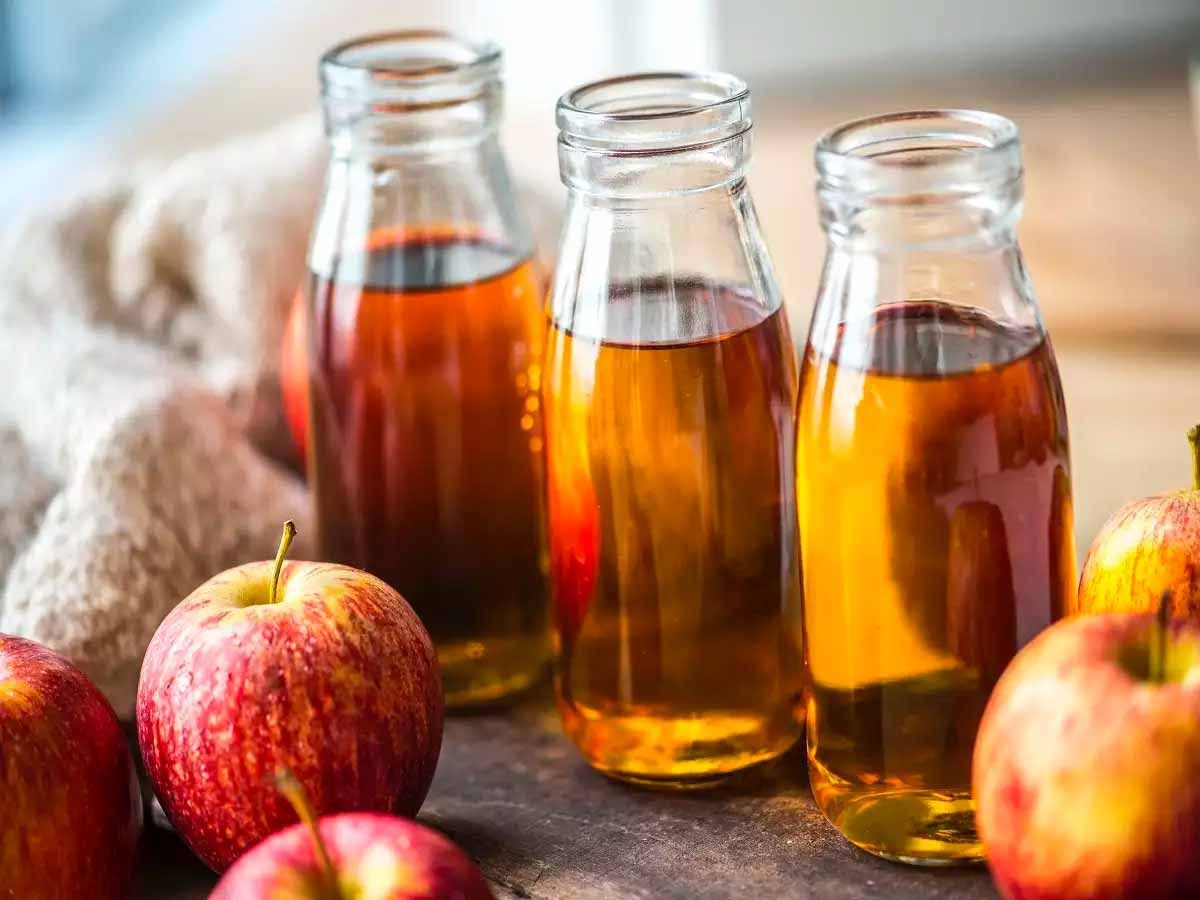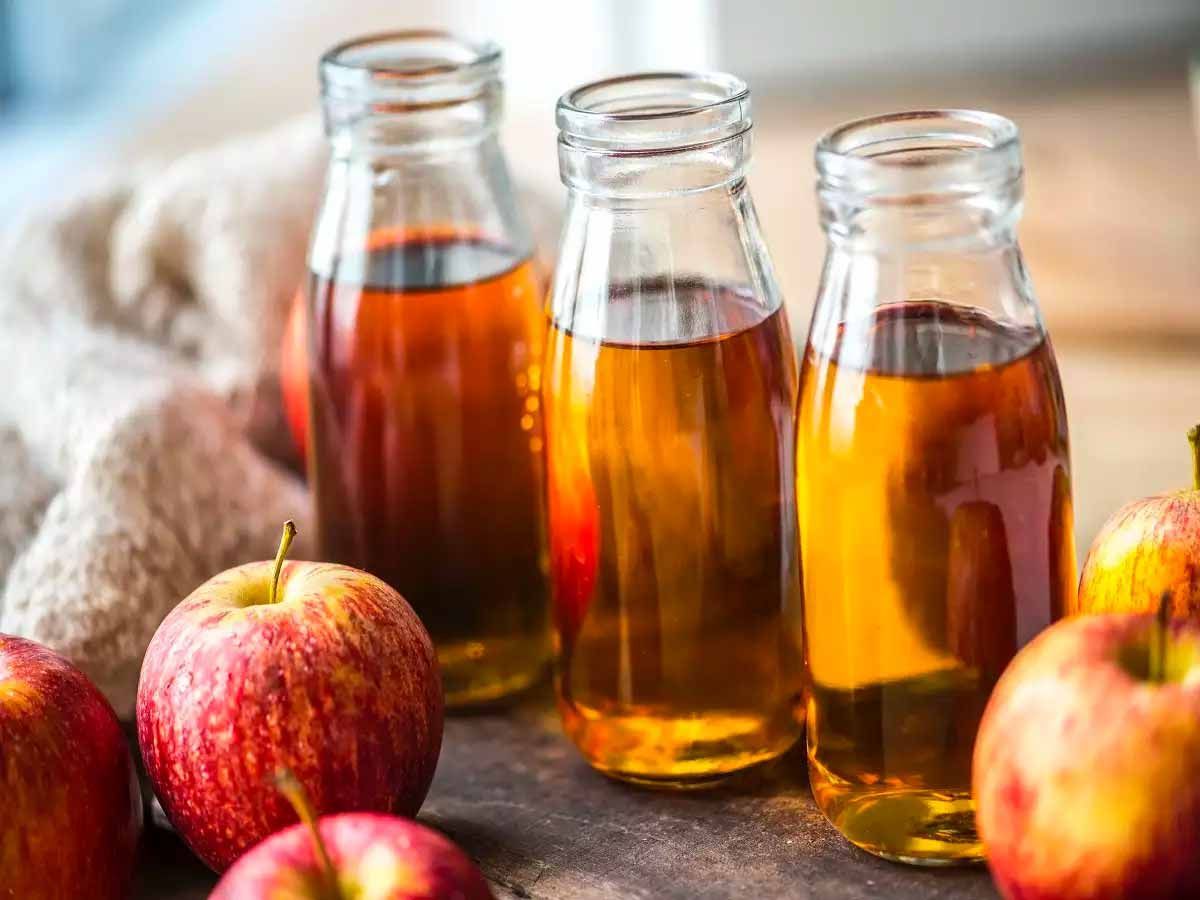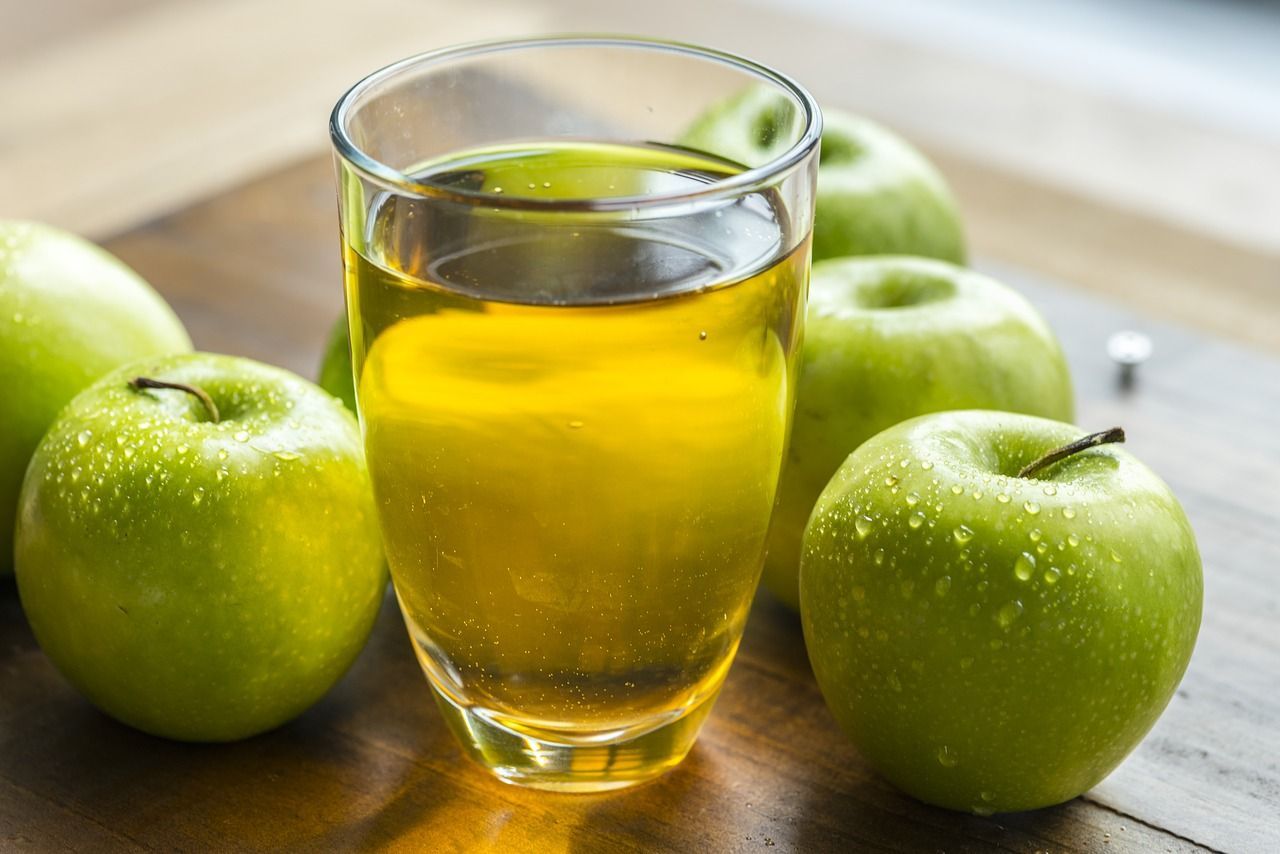Our recommendations are made independently. We may receive commissions from purchases made via our links.
Apple Cider vs. Apple Cider Vinegar
Wondering what the differences are between apple cider vs. apple cider vinegar? All of your questions about these two will be answered in this guide!
With the recent surge in popularity of apple cider vinegar, a lot of people are wondering what the differences are between apple cider vs. apple cider vinegar.

The two of them share almost the same name. Side by side, they look remarkably similar, and they also have the same fruity scent as one another. This can understandably spawn some confusion.
This handy guide will sort everything out for you!
Apple Cider vs. Apple Cider Vinegar: What Are They?
The short version is that apple cider vinegar (ACV) is the fermented product of alcoholic apple cider (or hard cider). Meanwhile, apple cider is very similar to apple juice.
That’s only the bare-bone basics, though. The proper answers are a bit more complicated.
1. Apple Cider
Apple cider has been around for thousands of years, dating as far back as 1,000 BCE.
The way to make it is fairly simple. Juice is extracted from whole apples, then boiled up to concentrate it.
The usage of whole apples is what sets it apart from apple juice. Cider uses the full apple (skin and core included). Apple juice only uses the inner flesh. Because of this, cider tends to have a deeper color than apple juice and a tangier taste.
The Basics of Making Apple Cider
Cider manufacturing is quite simple. Apple juice is extracted from whole apples, then boiled to a concentration. The concentrated product is raw cider.
It can then be filtered and pasteurized to eliminate all of the bacteria within. However, this process is optional. You can find unfiltered and unpasteurized soft cider on the market, too.
If you want to produce hard cider, a few extra steps must be taken.
After the apple juice is extracted and concentrated, the fresh batch of soft cider is packed away in a special fermentation jar.
Over the course of 1 or 2 weeks, the naturally-occurring yeasts will break down the sugar molecules in the cider. The broken-down sugar becomes ethanol. Eventually, the soft cider in the jar will transform into alcoholic hard cider!
2. Apple Cider Vinegar
The word “vinegar” is used to refer to any fermented mixture of water and acetic acid. It can be made by fermenting a variety of things, from plants (potatoes), grains (barley, malt, rice), to fruits (apples, grapes).

In the case of apple cider vinegar, its vinegar base is, of course, apples.
The Basics of Making Apple Cider Vinegar
To make apple cider vinegar, you need to have hard cider at hand. The alcohol it contains is what is going to be converted into acetic acid later on in the process.
After the hard cider is produced, it is immediately packed into a different fermentation jar. Aside from yeast, apples contain a type of bacteria known as acetobacter, too. These bacteria will consume the alcohol in the hard cider and release acetic acid in return.
The jar is left to ferment for an extra week or two until it “matures” (reaches a sufficient level of acidity and sharpness in taste). Then, it is removed and sealed off in another jar for preservation and consumption.
If you are interested in learning more about the ACV-making process, we have a separate guide that shows you exactly how to make apple cider vinegar at home!
Alcoholic vs. Non-Alcoholic Apple Cider (Hard Cider vs. Soft Cider)
There are two types of apple cider out there: soft and hard.
Soft cider (or “sweet cider”) is the non-alcoholic variant. This is the original form of apple cider when it’s freshly made.

The second type of cider is called hard cider. This type is alcoholic and will have an alcohol content between 1.2% to as much as 8.5% ABV.
Now here’s the problem: depending on where you’re from, the naming is going to be different.
In the United States, when you say “cider”, most people will automatically assume you’re referring to soft cider. You will only get hard cider if you explicitly ask for “hard cider” or “alcoholic cider”.
In Europe and many other places, it is the complete opposite. The word “cider” is almost always used to refer to hard cider. You will only get the soft version when you ask specifically for “soft cider”, “sweet cider”, or “un-alcoholic cider”.

Knowing the difference between the two types is crucial in this article. ACV can only be produced by fermenting hard cider, so this type is more relevant to our article today.
Apple Cider vs. Apple Juice: Which One Is Healthier?
Apple cider tends to be a bit more nutritious than apple juice. As it is produced with the skin and core of the apple intact, it provides more fiber and vitamins.
If you purchase commercial apple juice, they tend to be far more processed. Besides chemical preservatives, a lot of sugar is also added. Together, they make apple juice more stable, but reduce much of its nutrition.
Apple cider, on the other hand, tends to be less processed overall. You can find many cider brands that sell unfiltered, unpasteurized cider without much processing at all. It doesn’t last quite as long, but a good majority of its nutritional content is preserved.
What Are the Health Benefits of ACV?
ACV has exploded in popularity in the past couple of years due to many of its alleged health benefits.
After going through the rumor mill of the Internet, ACV has transformed from a simple condiment to a miracle drug. It is said to be able to soothe an upset stomach, lower blood sugar, and help with weight loss. But then again, it’s also been said to be able to protect against cancer and COVID-19.
We have discussed in depth apple cider vinegar’s benefits before to debunk all the myths and establish the science behind this substance. You can check it out, if you’re interested!
But, overall, because misinformation about ACV is plentiful, a healthy dose of skepticism is always advised.

Uses of Apple Cider Vinegar
ACV is commonly diluted into drinks. There’s a small amount of scientific evidence that supports its use in weight loss and lowering blood sugar levels. However, the studies are quite limited in scope and duration, so don’t take it as fact.
Additionally, if you plan on drinking ACV, definitely check out this guide on how to drink apple cider vinegar. If you don’t mix it or drink it properly, it could potentially cause many health complications.
The sharp, tangy, and fruity flavor of ACV is also very useful in the kitchen. You can use it as a condiment for salads or add it into recipes to improve the flavors.
If you haven’t used ACV in your cooking before, many types of vinegar have a similar taste. If you have ever eaten a dish with any of these substitutes for apple cider vinegar before, it’ll be very easy for you to imagine!
Vinegar in general has also been used for a long time as a cleaning agent. This is quite solidly backed. In this study, vinegar was found to be the most effective method of eliminating bacteria and germs.
Aside from its use in beverage-making, cooking, and house-cleaning, ACV has been said to have several more applications. However, exercise caution and some skepticism when it comes to these extra uses. Most are not supported by science.
For example, people have been using it as a skincare product and a potential cure for eczema. Skincare products derived from ACV have become incredibly popular. With a brief search, you can find ACV facial toner, toner pads, face wash, among others.
A study done in 2019 found that ACV doesn’t have much of an effect on the skin’s integrity or health.
Diluted ACV has also been said to be a good mouthwash due to the antimicrobial properties of acetic acid. But in reality, because ACV is very acidic, it could damage your teeth enamel. There’s not a lot of science that shows its usefulness in oral hygiene, either.
And if you have heard of ACV being a cure for cancer, they are hoaxes. Vinegar has yet to be found to have any significant anti-cancer effects in humans.
Conclusion
In conclusion, when it comes to apple cider vs. apple cider vinegar, there aren’t too many differences between them. They are basically two forms of the same thing.





